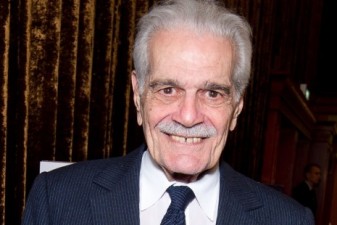
14/07/2015 12:38
Omar Sharif Victim of Deadly Combination
Legendary actor Omar Sharif, who died Friday at age 83, was a victim of the deadly link between Alzheimer’s and heart disease, a top cardiologist tells Newsmax Health.
Although he died of a heart attack, the star of “Lawrence of Arabia,” “Dr. Zhivago,” and many other films suffered from both cardiac problems and Alzheimer’s disease.
In the months before his death, Sharif had difficulty remembering his famous films, said his son Tarek El-Sharif.
Sharif developed Alzheimer’s within the past three years, his son said, but he had battled heart disease for many years before that.
“We say ‘bad heart, bad brain,’ because there is increasing evidence of a deadly link between these two diseases,” said Chauncey Crandall, M.D., one of the nation’s foremost cardiologists and author of the Heart Health Report newsletter.
Numerous recent studies have found that an ailing heart increases risk for Alzheimer’s and other cognitive problems, Dr. Crandall noted.
Landmark research last year at Duke University found a strong correlation between hardening of the arteries (atherosclerosis) and increased risk of brain plaques associated with Alzheimer’s.
“Although Alzheimer’s disease is thought of as a neurological disorder, there are multiple causes for it, including growing evidence that it is reflective of small vessel disease,” said Dr. Crandall.
“As people grow older, they become increasingly vulnerable to coronary heart disease and carotid disease as well as small vessel disease of the brain,” said Dr. Crandall, who wrote the #1 Amazon best-selling book, The Simple Heart Cure.
These conditions result in diminishing the supply of oxygen to the brain, a factor linked to dementia, vascular strokes, and increasingly to Alzheimer’s disease as well, he said.
Sharif underwent triple bypass surgery in 1992 and suffered a mild heart attack in 1994. Until quitting following his heart bypass, Sharif was a heavy smoker.
“Because of Omar Sharif’s medical history, his brain suffered a lot of insults, all which increased the possibility of his developing Alzheimer’s disease,” said Dr. Crandall.
“He was a former heavy smoker, which damages arteries, and he also probably had high blood pressure and a lipid disorder. Also, he underwent bypass surgery, which involves being placed on a heart-lung machine, and this can be associated with neurological damage as well.”
When a person is diagnosed with Alzheimer’s disease, coronary heart disease should always be suspected, said Dr. Crandall.
However, as dementia progresses, there is less inclination to subject the patient to aggressive cardiac treatment, he said.
“Alzheimer’s caregivers need to be on the alert for a heart condition or signs of an impending heart attack. This can be very difficult because people with Alzheimer’s disease often lose the ability to express themselves.”
Symptoms may include sudden worsening of confusion, irritability, and shortness of breath, Dr. Crandall said.








